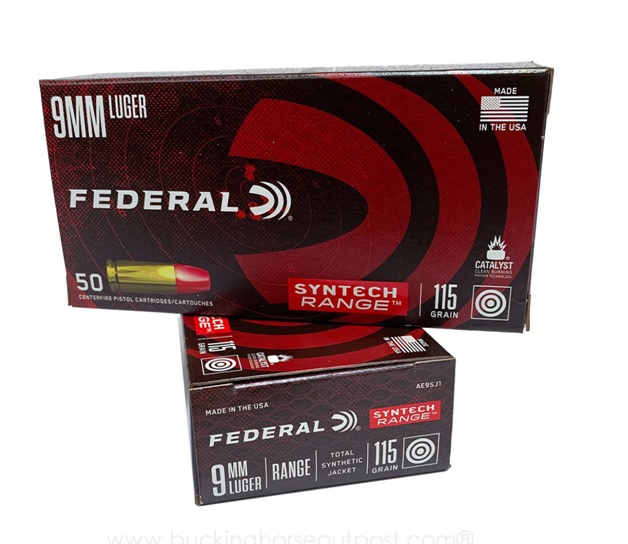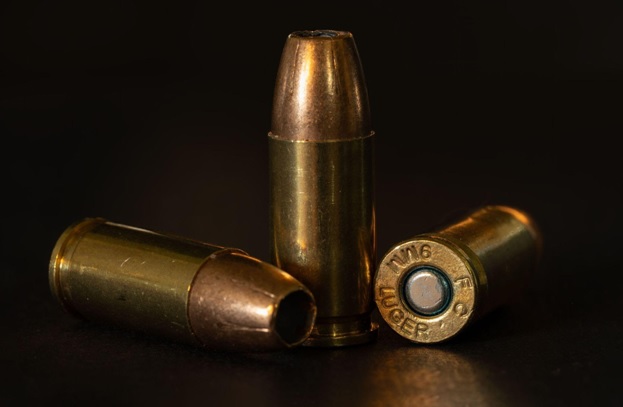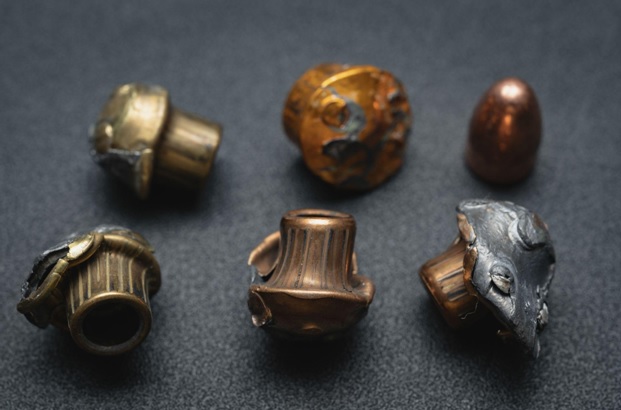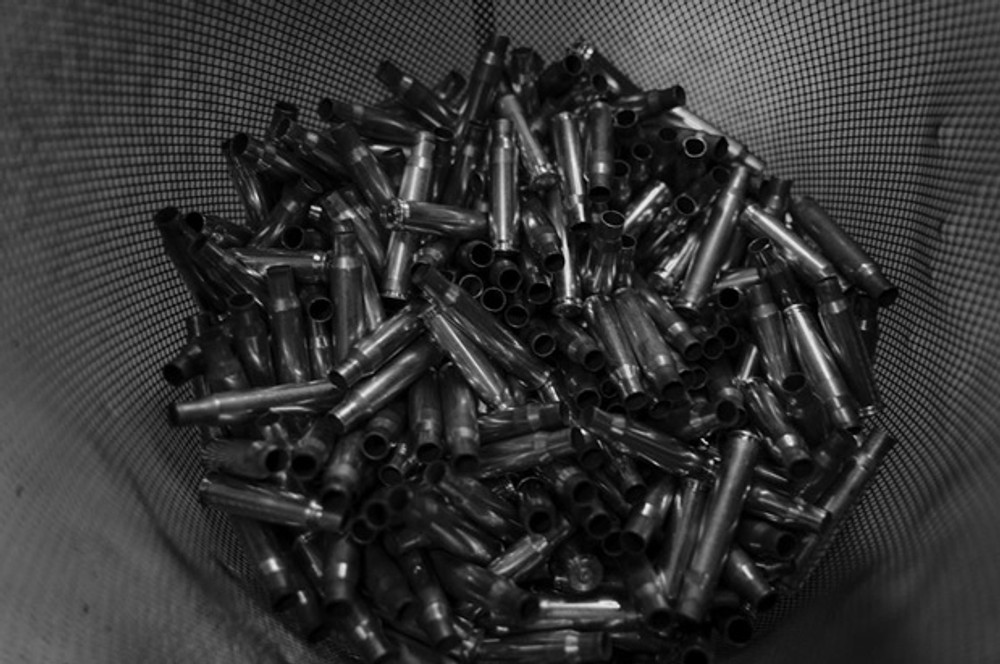If you’re one of the millions of new gun owners in the country, it can be a little daunting trying to tell the difference between all the different cartridges out there, especially as so many of them appear superficially to be similar or even the same - like .223 and 5.56.
Beyond that, one cartridge can be loaded with any of many different types of bullets, and the more popular a particular cartridge is, the more diverse the market’s offering is.
Take 9mm Luger for example, which is one of the most popular handgun cartridges ever designed and which is available with a surprisingly large range of different bullet types, the most common of which are described below.
9mm Full Metal Jacket Bullets
Among 9mm rounds, 9mm full metal jacket bullets are probably the most popular for competitive applications and training.
In a 9mm full metal jacket round, the cartridge is loaded with a bullet with a lead core that is covered, nose to base, in a hard jacket of copper gilding metal.
The base is left exposed but otherwise the core is completely covered. This jacket is made of a harder metal than the lead core, producing a bullet that is very stable, accurate, and which offers optimal penetration.
As a result, 9mm full metal jackets are the most accurate at greater ranges, and are also usually among the cheapest, making them great for training, high-volume target shooting, and competition.
Flat Nose Bullets (Wadcutters)
A flat nose bullet, also known as a wadcutter, is a special type of 9mm full metal jacket bullet that, as you might expect, has a flat nose.
The benefit here is that the flat nose of the bullet usually punches a clean, round hole in paper targets, making scoring easier and more precise. As a result, 9mm wadcutters are preferred by some shooters for competitive shooting applications.
Lead Round Nose
Lead round nose, or LRN, 9mm bullets are so rare they are almost unheard of, but there are still some specialty producers from which they can be purchased.
The benefit to lead nose bullets is that they are cheap, but that’s about it. They are dirty, increase lead exposure, which is toxic, and leave heavy lead fouling in the barrel that, after a short time, will counteract accuracy.
Total Synthetic Jacket

Some specific 9mm rounds, like Federal American Eagle’s Syntech TSJ rounds, are loaded with bullets that have a total synthetic jacket.
These bullets feature a core that is completely encased in a polymer jacket which prevents the gun’s bore from contacting naked lead, minimizing if not eliminating lead fouling that is both toxic and offsets accuracy when it’s thick in the bore.
These bullets are great for training as they are intended to mimic the performance and reliability of other lines of ammo used for defensive applications (like Federal HST) while minimizing lead fouling, necessitating less frequent cleanings and protecting accuracy.
For what it’s worth, these specific Federal rounds are also better for indoor range training because they are loaded with reliable, consistent primers that do not use lead, keeping lead exposure down further, making them safer for indoor spaces.
Bonded Hollow Point

Bonded hollow point 9mm bullets are 9mm bullets with a lead core that has been partially bonded to a copper jacket, but which has a depression at the nose.
First an explanation of hollow point - the depression in the nose of the bullet, that is, the hollow point - enables the bullet to disrupt, or expand upon impact with a soft target.
This produces a wider wound channel with greater potential for cavitation, and also helps prevent the bullet from traveling too far through the target, or even over-penetrating through the other side.
This makes hollow point bullets, in general, superior for defensive applications and hunting because they produce greater stopping power, greater energy transfer, and a lower risk of overpenetration.
On top of that, a bonded hollow point, specifically, produces a lower risk that the bullet’s core will separate from the jacket on contact. This enables the bullet to maintain more of its mass, penetrating deeper and more effectively.
Non-Bonded Hollow Point
On the flipside, there are also non-bonded hollow points, which are the same as hollow points in basically all manners except that the core of the bullet is not bonded to the jacket.
They still produce optimal energy transfer characteristics for better ability to neutralize a hostile target, as well as a minimal risk of overpenetration.
Bonded bullets tend to take the advantage in nearly all ways except cost - in which case non-bonded bullets are superior as they are more affordable.
However, in most instances, a non-bonded bullet would perform just fine for defensive applications.

Soft Point Bullets
Soft point bullets are similar to hollow point bullets in performance because the bullet is partially jacketed with some of the lead core exposed at the nose.
This lead core is softer than the jacket, enabling a certain degree of expansion on contact with a soft target. This makes soft point 9mm bullets, like hollow points, ideal for both defensive and sporting applications, like hunting.
However, in the latter case, soft points are often superior because they generally exhibit superior penetration as a result of the lack of a hollow point.
Frangible Bullets
Frangible 9mm bullets are a specialty, niche class of bullets that are designed basically to vaporize into dust on contact with a hard target.
This makes frangible bullets safer for shooting indoors or at steel targets because there is a much lower risk of ricochet. Since the bullet basically disintegrates on impact, it’s perfect for training, but doesn’t produce much danger as a result of ricochet.
Though safer, frangible bullets are generally more expensive than alternatives, and it should be noted that they are not suitable for most applications other than training.
Hollow Base Bullets
Lastly we have hollow base bullets, which are a somewhat rare type of 9mm bullet. The idea here is that since the base is hollow, the skirt of the bullet will expand and engage the rifling better, producing a more accurate bullet.
The other thing about hollow base bullets is that they are also lighter than conventional FMJ bullets, the result of which is that they produce less recoil, making them potentially better for recoil sensitive shooters.
Stock Up on 9mm Full Metal Jacket Bulk Ammo Here
Looking for quality 9mm full metal jacket ammo for range training and competition at low prices? Stock up here, and while you’re in our online shop don’t miss our hot deals and police trade-in specials.

